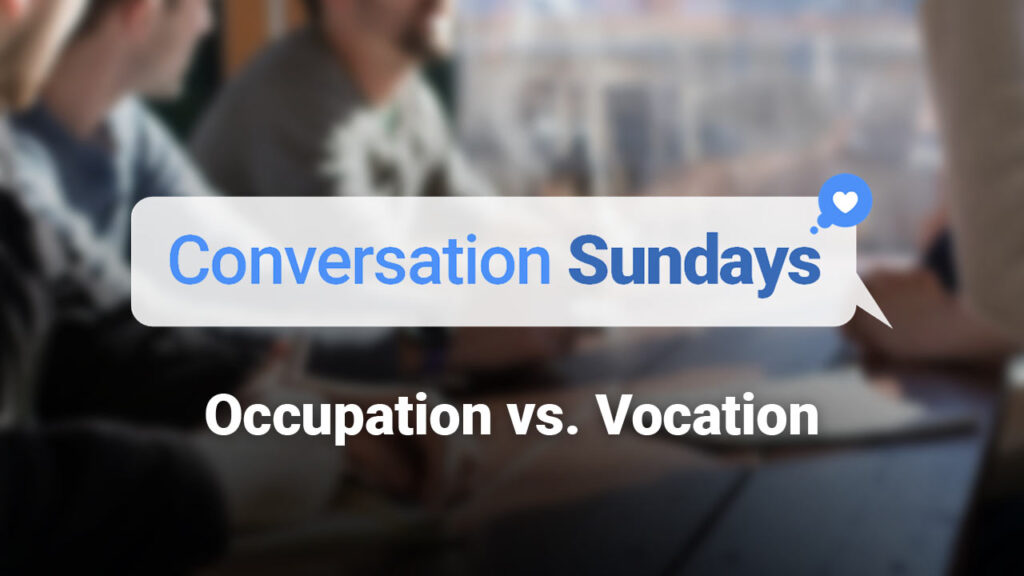Occupation vs. Vocation?
Focusing on what God has called each of us to
Our culture is more focused than ever before on jobs and occupations. There’s a growing sense that our happiness, even our self-worth, depends on finding a purposeful, impactful, and fulfilling career. In today’s culture, you’re not just expected to do a job, you’re expected to find a job that makes a difference – that is, if you want to be happy or fulfilled.
Perhaps nothing illustrates this point quite like the new type of occupation we are seeing on TikTok and Instagram, that of the “influencer.” An influencer is an individual with a mass following on social media, so much so that they are able to generate income from sponsorships and endorsements. The social media influencer is an occupation, to be sure. And it certainly aligns with the performative values through which we understand occupation. But I’m not sure that’s what it means to live a Christian vocation.
Martin Luther had a lot to say on the subject of vocation. Throughout his writings, Luther advocates that we all have a vocation. “Every occupation has its own honor before God,” Luther writes. “Ordinary work is a divine vocation or calling. In our daily work no matter how important or mundane we serve God by serving the neighbor and we also participate in God’s on-going providence for the human race.”
In the Sermon on the Mount, when Jesus tells us that we are the salt of the Earth, he isn’t calling us to perform or to influence, or to find the perfect job. Rather, he is calling us to a sense of communal alignment. Jesus is calling us to discern how to align our values and our gifts for the sake of the Gospel in the world.
So how might we focus less on our occupations, and focus more on the vocation God is calling us to? First, discern your values. Jobs change. Values stay consistent. Some of us have values related to faith and family, others to learning and service. As we become aware of our personal values, we become more aware of our vocational identity. Second, know your gifts. God has given each of us gifts for the sake of service to God and to the neighbor. When we connect our values to our gifts, we are more likely to live into our vocation, regardless of our profession. Finally, have some grace on yourself when it comes to your calling and career. Our vocations are more expansive than our profession. There’s no need to have the perfect job to serve God. Because in Christ, all of us can serve as the salt of the Earth, the light of the world.

